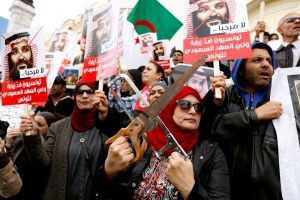
By Orhan Coskun and Dominic Evans
ISTANBUL (Reuters) – Eight weeks since the killing of journalist Jamal Khashoggi at the Saudi consulate in Istanbul, U.S. President Donald Trump’s unwavering support for the kingdom’s powerful crown prince has left Turkey in a bind.
The longer it confronts Saudi Arabia over who exactly ordered the operation, the more it risks looking isolated as other countries put aside their misgivings and return to business with the world’s biggest oil exporter.
A prolonged standoff with Riyadh could also jeopardize Turkey’s own fragile rapprochement with Washington if it forces Trump to choose sides between the rival regional powers.
Turkey’s dilemma comes to a head this week at the G20 summit of the world’s main economies, where President Tayyip Erdogan and Saudi Arabia’s Crown Prince Mohammed bin Salman could meet, according to Turkish officials.
Without naming him, Erdogan has repeatedly suggested the prince has questions to answer over the killing, while one of his advisers has said bluntly that Saudi Arabia’s de facto ruler has Khashoggi’s blood on his hands.
But Erdogan has avoided talking about Khashoggi’s death in recent speeches, raising questions about whether he may soften his stance towards the 33-year-old heir to the throne who could be running Saudi Arabia for several decades to come.
“A meeting may take place. A final decision has not been made yet,” a senior political source said, shortly before Erdogan’s departure for the summit in Argentina.
“Saudi Arabia is an important country for Turkey … Nobody wants relations to sour because of the Khashoggi murder.”
Erdogan has good relations with the Saudi monarch, King Salman, but ties have been strained by recent Saudi moves including the blockade of Qatar, championed by Salman’s son.
Analysts say Erdogan sees Saudi assertiveness under the prince as challenging Turkey’s influence in the Middle East.

FILE PHOTO: A woman takes part in a protest opposing the visit of Saudi Arabia’s Crown Prince Mohammed bin Salman in Tunis, Tunisia, November 27, 2018. REUTERS/Zoubeir Souissi/File Photo
It was the steady drip of evidence from Turkish officials – furious over what they said was a gruesome and carefully planned assassination in their country – which fuelled global outrage at Saudi Arabia and Prince Mohammed.
Erdogan said the hit was ordered at the highest levels of Saudi leadership, and the CIA assessed the prince was directly behind it, despite vehement Saudi denials.
But nearly two months since Khashoggi was killed and his body dismembered by a team of 15 Saudi agents, Western powers have taken little action against Saudi Arabia, a big buyer of Western arms and a strategic ally of Washington.
The most concrete U.S. step so far was a decision in mid-November to impose economic sanctions on 17 Saudi officials, including the prince’s senior aide, Saud al-Qahtani.
Meanwhile, Trump has stood by the crown prince, saying he does not want to jeopardize U.S. business and defying intense pressure from lawmakers to impose broader sanctions on Saudi Arabia.
SECOND THOUGHTS?
On Wednesday, U.S. Secretary of State Mike Pompeo and Defense Secretary Jim Mattis said there was no direct evidence connecting Prince Mohammed to Khashoggi’s murder, and that any downgrading of U.S.-Saudi ties in response would hurt U.S. security.
That clear message from the Trump administration may be forcing Turkey to think again.
“Initially the objective was to pressure Trump to drop his relationship with MbS,” said Sinan Ulgen, a former Turkish diplomat and analyst at the Carnegie Europe think tank, referring to the crown prince.
“On the contrary, Trump seems to have decided to consolidate that relationship, and that’s why there had to be a reassessment in Ankara about how to manage this,” he said.
Ulgen said Erdogan’s priority was to safeguard the modest recovery in relations with Washington since a Turkish court last month freed a U.S. pastor who had been detained for two years on terrorism charges.
“Turkey doesn’t want to endanger the political capital that it earned in Washington by pushing too far (on Khashoggi). That’s the main motivation,” he said.
Bolstered by Trump’s support, Saudi officials have insisted that Prince Mohammed did not know in advance about the operation, and Foreign Minister Adel Jubeir said last week Turkish authorities had told Saudi officials that they were not accusing the crown prince of involvement.
Saudi Arabia’s official news agency said trade ministers from the two countries met in Istanbul on Wednesday and would encourage Saudi investment in Turkey, and Turkish companies to take part in projects in Saudi Arabia.
Any change in Turkey’s approach would likely be gradual. Erdogan made no mention of Saudi Arabia when he spoke to reporters as he left Istanbul airport on Wednesday night, but he may still choose not to meet the prince in Argentina.
“Saudi Arabia has yet to make a satisfactory statement regarding the murder in Istanbul,” said Ilter Turan, a professor of political science at Turkey’s Bilgi University.
“The Turkish government is still working on the investigation … It’s possible to say that it’s a little too early for a meeting.”
Another Turkish official said the government was still assessing the Saudi request for a meeting. If the two men do hold talks in Buenos Aires, the conversation would be broadly the same as the phone call they held a month ago, he said.
“Turkey will repeat its current position at the meeting if there is one,” the official said. “Turkey wants all those responsible for the murder to be brought to justice, and it’s not asking for a punishment for Saudi Arabia.”
“It’s not realistic to expect a major improvement from that meeting, but a contact will have been made”
(Additional reporting by Tulay Karadeniz; Editing by Giles Elgood)


